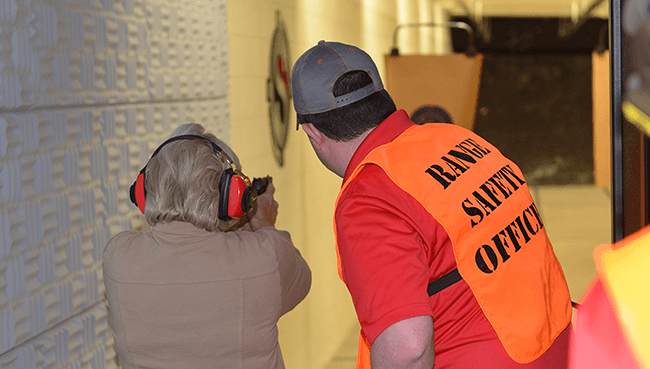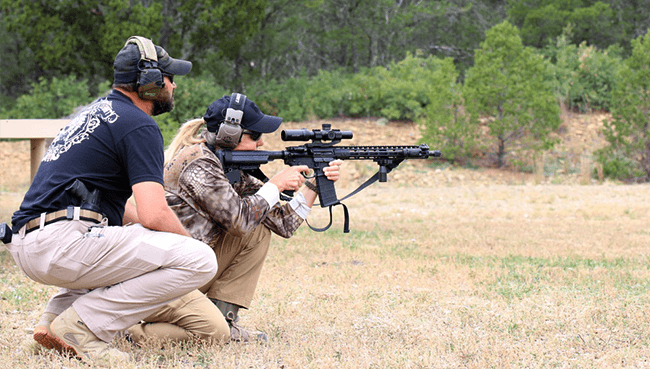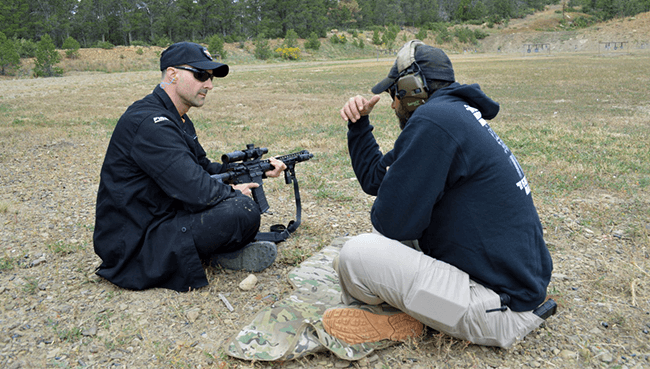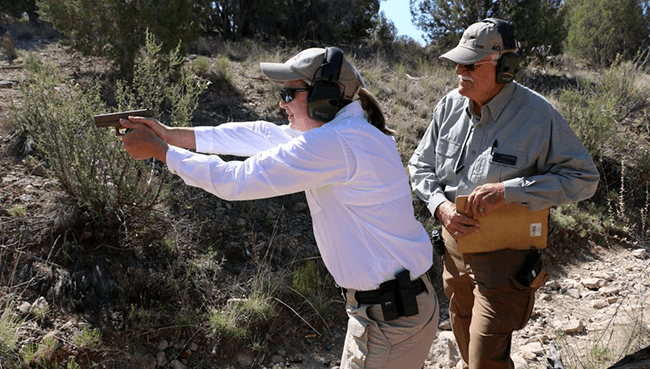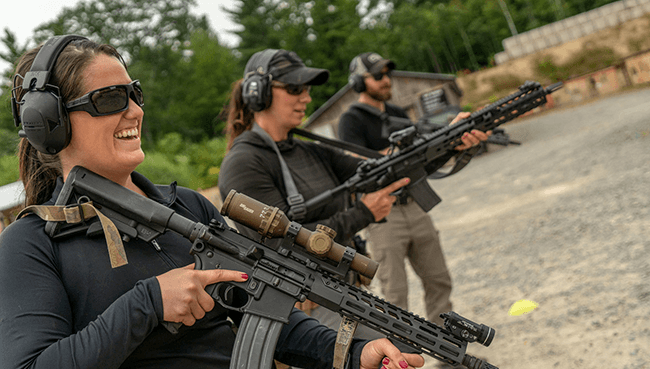Finding the Right Firearms Instructor
By Eve Flanigan
The quest to shoot better, to be an effective bodyguard for one’s self and loved ones or even to just learn to handle a gun safely usually requires live interaction with an instructor. Though there is a lot of worthy content online, handling firearms has physical, kinetic and sometimes mathematical challenges that everyone, sooner or later, must overcome with in-person help. There are many private instructors and training companies across the nation to satisfy that need for help—but how do you select the one that best suits your needs?
Matching the Instructor to Your Needs
To start, define what it is you want from using a gun. A typical concern for new adult shooters, for instance, may go something like, “My spouse insists on having a gun in the bedroom in case of a home invasion. But I’m afraid to touch it and worried about my grandson accessing it when he visits. I need to learn how to be safe with this gun.” Clearly, that person needs to learn how to safely handle a firearm—how to pick it up correctly, how to keep their finger off the trigger, basics of sight picture and trigger control, etc.—as well as education on safe storage options. At the other end of the spectrum, someone who’s handled one type of gun for years might want to understand how to handle and maintain an entirely different kind of firearm. That person would likely have safe firearms handling down pat but need instruction on that new firearm’s action, idiosyncrasies, break-down and reassembly.
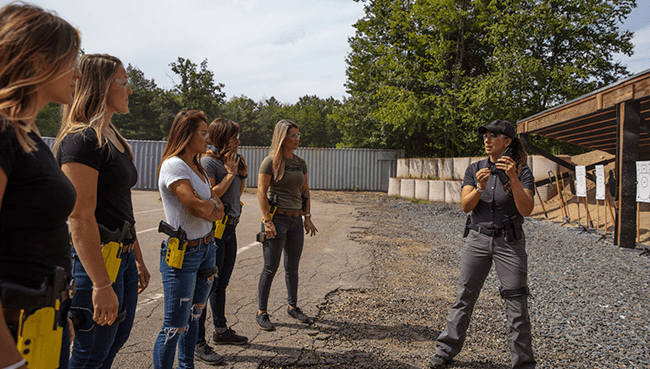
No matter where you are on the firearms-knowledge spectrum, define what it is that you wish to accomplish through instruction, then seek an instructor who advertises as having or, better yet, is known by trusted friends to have, skills in your area of interest.
They Have the Resume, But Are They a Good Fit?
Once you’ve arrived at that first lesson with the instructor you’ve chosen, how do you evaluate whether they’re a good fit for future instruction? Here are a few tips to make that decision clearer.
1. Good Instructors Put Safety First
Every reputable school or instructor begins the day’s session with a confirmation of the rules for safe gun handling and that all present understand and will abide by those rules. Competent instructors understand that no activity, including shooting, is without risk, but they also balance that risk with safety practices suited to the skill level of the group. A good instructor, for instance, would take who signed up for a tactical skills class but who admitted to never having handled a firearm before, allow them to audit the class without shooting and then schedule them for a Skills 101 session.
2. Good Instruction Addresses Your Goals
Once your research is completed and you’ve decided on an instructor, call the range and discuss with that instructor what your goals are and the gear required to successfully complete the class. Depending on class size, you may or may not have the opportunity to share personal goals during the class, so this bit of homework beforehand can help make sure you’re not wasting your time nor the instructor’s in a class that doesn’t work towards what you want to accomplish. During class, a good instructor should take at least some time to answer specific questions. Such an instructor will also admit when a question exceeds their realm of expertise, and if they’re really good, they’ll have referral resources available.
3. Skilled Instructors Adapt to Students’ Learning Styles And Level Of Readiness
The wise instructor should have an assortment of communication styles and methods for helping students understand and develop their skillsets. This includes the ability to explain, with real-world reasoning, why any given skill is being taught. An expert’s technical expertise or career’s worth of experience is only useful if the information is delivered in a manner that can be absorbed, applied, and retained. Whether the class is large or one-on-one, a competent instructor will also have an assortment of adaptations for most drills or other class activities. Adaptations might be applied for students’ skill levels, physical capabilities or firearm type. For example, an instructor teaching handgun reloading skills should be equally adept with semi-auto magazines and revolver speed-loaders, as well as understanding the gear for carrying each.
4. A Good Instructor Gives Homework
Quality instruction always includes the sharing of techniques or shooting drills that you can safely emulate during self-guided practice. While some exercises may not be replicable due to your range’s amenities or involvement of multiple participants, every lesson should send you home with at least three skills you can practice on your own. Here is where astute students use their tuition as an investment. Make notes during breaks of the drills you performed in class, including target sizes and distances, time limits, round counts and so on. Note your best performance and use that as a standard to improve upon. Jot down insights on gear, gun handling, anything else that strikes you as important. An epiphany in class is too soon forgotten, and time and money wasted if the return to workaday life is allowed to erase the insights gained from a day of focused activity at the range.
5. Great instructors inspire
Skillful instructors stretch students’ comfort zones to test and refine techniques, and great teachers inspire students to become a better version of themselves. While there is no perfect human on this earth, memorable instruction leaves you with at least one principle or way of approaching your firearms handling that sticks with you and to which you can return for guidance in a challenging circumstance.
The Big Picture
It’s possible that an ideal instructor for you today won’t be a perfect match two years from now. If the instructor does their job and you apply what you’ve been taught, you can very well outgrow their skill level. Consider, as well, that your interests within the gun world may change. Keep an open mind and try different teachers, even those outside your strict area of interest.
The principles of gun safety, marksmanship and related skills never change. Equipment trends come and go, and sport science drives changes in technique every decade or so. Keep in mind, too, that the best instructors are also students, standing on the traditions and legacies of past masters while testing new ways and staying competent in their realm. By learning and practicing in earnest, you’re equipping yourself to perhaps be a casual or formal instructor someday as well. Soak it up!
In this video, Gunsite Academy Instructor Bob Whaley discusses training and the importance of repetition and consistency. As Jeff Cooper founder of the Gunsite Academy said, “You must train until it becomes part of your personality.”
